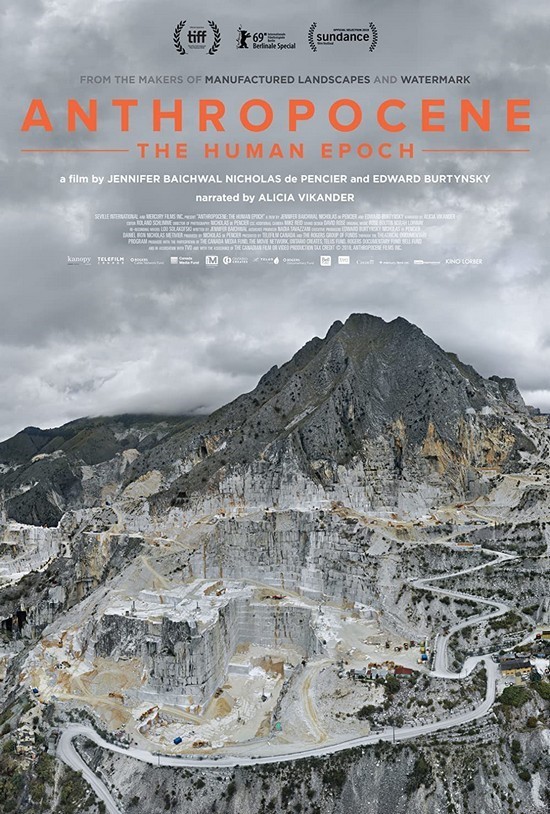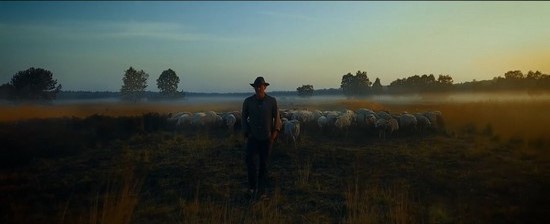Cinema can play a pivotal role in helping reclaim the environment,
and this has made many a filmmaker rise to the cause and attempt to transform
society, and the world, into a better place.
اضافة اعلان
Films about
Humans and Our Planet is an initiative that will see three movies screened
tomorrow by the Royal Film Commission the event is organized in cooperation
with Greener Screen and with the support of Abdul Hameed Shoman Foundation. The
filmmakers capture the human effect on and attempts to protect the environment
and how humanity can sometimes be very harmful to our planet.
 The filmmakers capture the human effect on and attempts to protect the environment and how humanity can sometimes be very harmful to our planet. (Photos: Handouts from the Royal Film Commission)
Kilo 64 by Amir
El-Shenawy
The filmmakers capture the human effect on and attempts to protect the environment and how humanity can sometimes be very harmful to our planet. (Photos: Handouts from the Royal Film Commission)
Kilo 64 by Amir
El-Shenawy
In 60 minutes, we witness the journey of an ambitious pharmacy graduate
who shifts his career and starts a farming business at Kilo 64 off
Cairo-Alexandria desert road.
Moved by the
spirit of the January 25 Revolution, Wael El-Shenawy, 24, founds an agriculture
startup with the aim of making a social impact, but not everything goes as
planned.
Kilo 64
documents Shenawy’s difficult journey on the road of self-employment. A
graduate of the Faculty of Pharmacy, he decides to leave the chemical
laboratories and go to Kilo 64 to follow his dream, which he discovered late in
his last year of college. He returns to his father’s old land, which he had
bought in the mid-1990s for the purpose of reclamation and cultivation, and
starts where his father had finished.
Not discouraged
by the fact that his father’s project had failed all those years before and by
his lack of experience in the field, he embarks, with the help of his parents
and friends, on an unexpected journey accompanied, at the beginning, by high
hopes, and punctuated throughout by many difficulties.
In the face of
those obstacles, it is difficult to predict the end of Shenawy’s journey; what
is clear is that the film has been successful in its mission on more than one
level, although it needs some scrutiny.
We only know in
the middle of events that the film director Amir El-Shenawy is in fact the
hero’s brother; this explains what we have seen throughout the first half of
the character’s comfort and simplicity in talking to the director, and shows us
how we feel about such intimacy, as this is a “family film” so to speak.
 Anthropocene: The Human Epoch by Jennifer
Baichwal, Edward Burtynsky, and Nicholas de Pencier
Anthropocene: The Human Epoch by Jennifer
Baichwal, Edward Burtynsky, and Nicholas de Pencier
Human activities leave a deep and almost irreversible imprint on the
geological and climatic history of our planet. The makers of the film traveled
the world to collect evidence of this. Based on very high-definition
photographic techniques, Anthropogenic: The Human Epoch bears witness to a
critical moment for humanity.
At the brilliant
intersection of art and science, this film is a fascinating and provocative
experience of how our species destroys the Earth.
The trio of
Canadian directors invites the viewer on a journey around the planet — six
continents, and 20 countries — to see how, all over the world, man has taken
over nature, affected it, transformed it, abused it, and ransacked it.
The film talks
about climate change, of course, but it also shows the way man aggresses
nature, whether in the form of extractions, dumps, extension of cities, or
anything that leads to the extinction of animal species. For example, every
year, 60 to 100 billion tonns of materials are extracted from the earth, or
about 30kg per day, on average, for each inhabitant of the planet.
The main
ambiguity lies in the way the three filmmakers sublimate, thanks to their
camera, the worst of our humanity. The immensities they fly over resemble
bodies or abstract paintings. In reality, the aesthetic point of view is the
total provocation. The tone refuses the aggressiveness or the guilt associated
with the ecology.
The camera films
the monstrosity. It lives in gigantic machines, stuffed with electronics, which
ravage the earth in search of precious metals. It is also housed on this
Chinese coast that workers raise with concrete tubes to ward off the inevitable
rising waters. In short, humanity is drowning in its own stupidity.
The filmmakers
observe a very ancient land that humans have destroyed in a few thousand years.
Anthropocene then becomes a plea for collective awareness, namely, that
everyone can contribute to the survival of the planet.
 Sheep Hero by Ton van Zantvoort
Sheep Hero by Ton van Zantvoort
In the misty stillness of the moor in the early morning, Stijn leads
his herd of sheep. With determined blue eyes and the look of a solitary cowboy,
he is one of the last traditional shepherds in the Netherlands.
The simple
existence he paradoxically preserves it at the cost of a fierce struggle, year
after year, against mechanization, competition, lower subsidies, and
administrative pitfalls.
When he loses
his main grazing contract, the situation becomes desperate. But the heroic
shepherd is not one to give up.
He is a free man
clinging to his ideals in a world dominated by the law of the market,
transformed, against his will, into a modern entrepreneur who takes with him
his wife and sons, but also his parents and a few disciples committed to his
cause.
He, thus,
becomes an event organizer and restaurateur, intervenes on the radio, and even
finds himself with one of his sheep on a television set. The shepherd has
become a showman. Is it at the risk of getting lost?
It is this state
of permanent struggle which gradually sees the resistance against someone
stronger than him transforming into an inner fight that the film sets out to
make us feel.
Read more Entertainment
Jordan News





